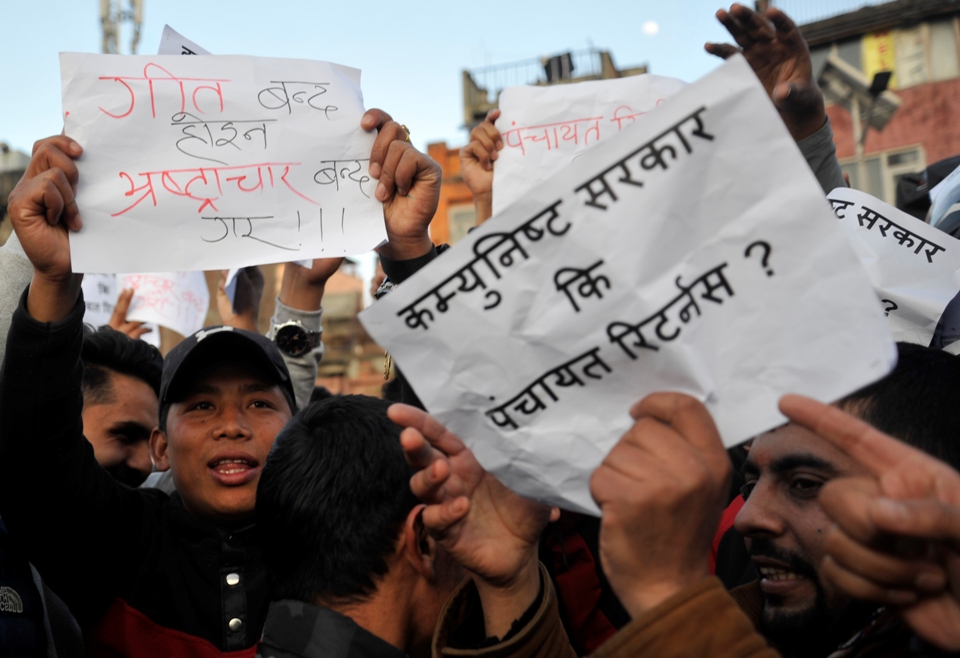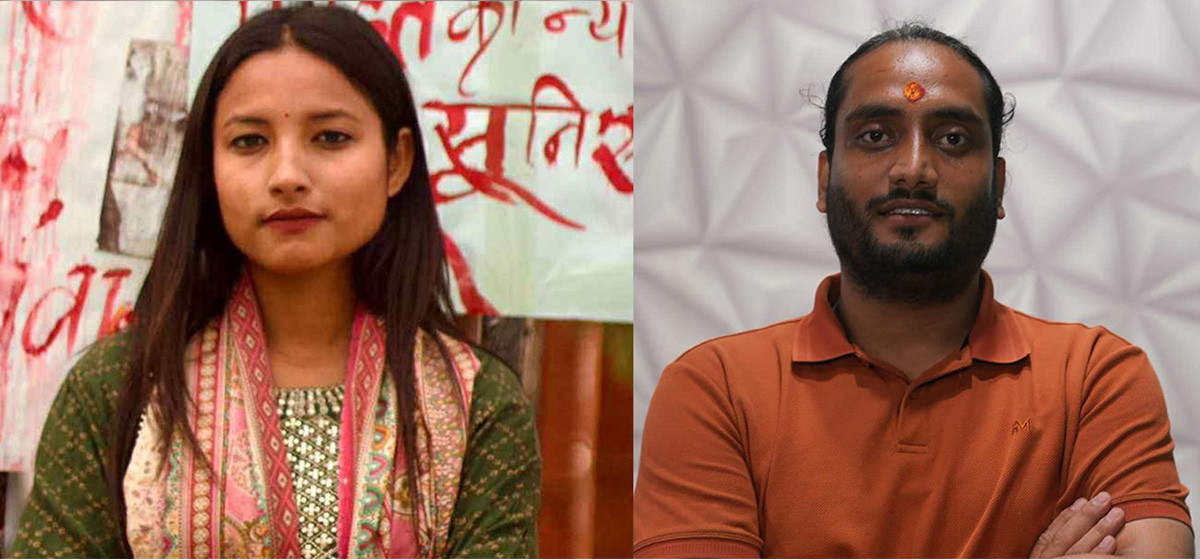I don’t know if it’s just me or not but the Democracy Day celebrations this past Tuesday were a little underwhelming to say the least. It was more a perfunctory exercise than an actual commemoration of our democratic journey and the sacrifices made by many to get us to where we are today. There was the usual coterie of ministers, the hierarchy of the police, army and the bureaucracy and various other ‘dignitaries’ listening (or not, perhaps) to the same old platitudes given by the Prime Minister and the President.
You would think that after all the struggles from the repression of the Rana regime to the uncertainty of the Panchayat era, the tribulations of the civil war and the prolonged peace, constitution drafting and electoral processes, our politicians would be lining up to celebrate ‘democracy’ – or at least their version of it – with a little more gusto.
After all, they never tire of reminding us of the sacrifices that we made, whenever it suits them. We might be forgiven for expecting a little more enthusiasm from them because if democracy has been good for anyone, it is our politicians who have had free rein to enrich themselves at our expense since the second coming of the multi-party movement in Nepal. But, on the other hand, you half-expect this sort of indifference at a juncture when the very notion of democracy and its accompanying principles, particularly freedom of speech and expression, have started to become more than an annoying inconvenience for our ruling party.
No one should dream of going against democracy: PM Deuba

The government is in the process of taking a sledgehammer to that all important democratic principle – freedom of expression – with its proposed bill on regulation and management of information technology that seeks to regulate social media content, among other things. In the name of promoting social harmony and integrity of the country, it is a blatant and rather ill disguised attempt to suppress and muzzle any criticism, or in their words ‘objectionable’ content directed towards the ruling parties and its sister apparatuses. The word ‘objectionable’ is of course open to interpretation and no points for guessing how this interpretation is going to be wielded by those in power.
 If I’m not mistaken, one of the provisions of that proposed bill is the registration of social media companies in Nepal. Perhaps they would like these companies to have physical offices here so that they can be threatened and intimidated by their youth wings whenever the need arises. You would think that as politicians and frequently the subjects of criticism, most of them would have developed pretty thick skins. But as it turns out, we might just have the most sensitive public servants in the entire world – just not sensitive to the things that matter.
If I’m not mistaken, one of the provisions of that proposed bill is the registration of social media companies in Nepal. Perhaps they would like these companies to have physical offices here so that they can be threatened and intimidated by their youth wings whenever the need arises. You would think that as politicians and frequently the subjects of criticism, most of them would have developed pretty thick skins. But as it turns out, we might just have the most sensitive public servants in the entire world – just not sensitive to the things that matter.
While they can be breathtakingly indifferent to women’s issues, corruption and rampant impunity, a few social media posts or unflattering photos are quite enough for them to get their granddaddy knickers in a twist. Witness the frankly moronic over reaction of the party’s youth wing to the singer Pashupati Sharma’s satirical song and there you have the government’s permanently defensive stance (and general public defiance) in a nutshell.
Anyway, even if they end up enacting this draconian law, how exactly are they going to go about policing it? In Nepal, making laws are not that difficult – there is a law for everything from major scams to taking a dump on the side of the road. It’s just that significantly bigger matter of implementation and enforcement that is the problem. It’s hard enough for our police to catch rapists, murderers and gold smugglers without having to go after armchair activists and critics on social media. It’s all to do with government mandated priorities, I suppose.
Among our ruling elite, there seems to permeate this erroneous notion that freedom of expression as enshrined in the constitution is a right bestowed by the ruling party of the day whether it is the NC, NCP or anyone else. This is a notion that hopefully will be severely tested by all of us in the near future because, the ability to enforce it notwithstanding, this government is ultimately going to pass this law – even if it is a watered down version of it. After all, they have a two-thirds majority that they constantly remind us of. The only silver lining in this onslaught against personal expression is our track record of administrative apathy and ineptitude in enforcing laws in Nepal.
In any case, in this digital age seeking to limit, regulate and enforce opinions and expressions is easier said than done and is an undertaking that has eluded even some fairly authoritarian countries. As for an assault on its principles, our lawmakers might soon discover that democracy has a strange way of coming back to bite them. Given their sensitive skins, they would do well to remember this.








































